MOVIE NEWS
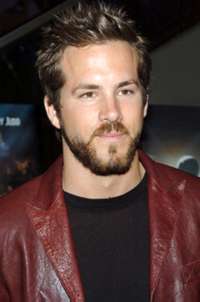
THE FLASH
'FilmRoach' reports that Ryan Reynolds (Blade Trinity) is keen to take the
lead in any future movie based on comic-book hero The Flash.
Reynolds has apparently stated "I am the Flash" and hopes the screenwriter,
David Goyer, who worked with Reynolds on Blade, will push for Reynolds to
take the role of a chemistry student gains incredible speed after a freak
accident.
NATIONAL TREASURE 2
The first movie cost a massive $100 million to make, but despite average
reviewed it took $318 million at the worldwide box office, so now 'Walt
Disney Pictures' have agreed to a sequel.
Director Jon Turteltaub talked to 'CRIonline.com' and mentioned that the
sequel should be filmed in a romantic and mystical country, and China is on
the top of his list. He is now seeking a screenwriter to develop a script
for the second instalment.
X-MEN 3
Okay, so Britain's own Matthew Vaughn is in the director's chair, but which
X-Men are joining the team this time? Well, first up is fan-favourite The
Beast, then Gambit and Angel (who will be a woman).
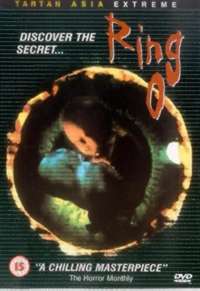
THE RING 3
Director Hideo Nakata (The Ring 2) has told the 'Chicago Sun-Times' that he
doesn't rule out another instalment of the horror franchise, saying: "I
wouldn't be surprised if there was another one. I'd love to do Ring Three.
In Japan, I directed a Ring prequel called Ring Zero (right). It's about how the
little girl was killed at age 8."
In relates news, 'Moviehole' reports that Naomi Watts will not return for a
third Ring movie because 'DreamWorks' "will go off in a different direction
for the second sequel" - which could mean the prequel idea has credence.
STAR WARS: 3-D
At 'ShoWest' recently, directors George Lucas, James Cameron, Robert
Zemeckis and Robert Rodriguez gave a presentation on 3-D movies.
All four directors are pushing for a new-wave of 3-D entertainment to hit
cinemas in the next few years, starting with Cameron's upcoming Battle
Angela Alita.
Lucas himself presented the first 8-minutes of Star Wars Episode IV,
transferred in 3-D, before announcing that the original Star Wars trilogy
will be released in theatres with a new 3-D transfer for the saga's 30th
Anniversary - in 2007, 2008 and 2009.

SPIDER-MAN 3
Thomas Hayden Church (Sideways) has been approached to play a villain in
Spider-Man 3. Sources suggest this could be The Sandman, purely on the basis
that Church would be easier to imagine in that role.
In similar news, the 'New York Daily News' spoke to Chloλ Sevigny (American
Psycho, right) who said she's trying to get a role in Spider-Man 3.
Sevigny: "I'd love to be in Spider-Man 3! There's a villain in it who's a
blond, buxom girl, and I'm trying to get it! That [may] surprise people,
since actors are always thought of as their last film or who they were. I
think I'll always be drawn to films more difficult to watch, but I don't
want to be a snobby cinephile."
So who is this buxom character Sevigny mentions? Could it be Spider-Man
villainess Black Cat..?
WONDER WOMAN
The Hollywood trades have all reported that Joss Whedon (Buffy The Vampire
Slayer) will write and direct a Wonder Woman movie.
Whedon: "Wonder Woman is the most iconic female heroine of our time, but in
a way, no one has met her yet. What I love most about icons is finding out
what's behind them, exploring the price of their power."
"When [producer Joel Silver] and I began discussing the character, I
realized there is a woman behind the legend who is very fascinating, very
uncompromising and in her own way almost vulnerable. She's someone who
doesn't belong in this world, and since everyone I know feels that way about
themselves, the character clicked for me."
Whedon's movie Serenity, a movie spin-off from his cancelled TV series
Firefly, is due for release in September.
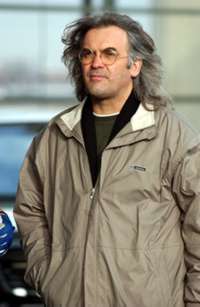
INTERVIEW - PAUL GREENGRASS, director (The Bourne Supremacy)
Terry Gilliam has been mentioned, it looked like Darren Aronofsky would take
the helm a year ago, but now British director Paul Greengrass is the man in
charge of (arguably) the greatest comic-book never filmed - Alan Moore's
fabulous superhero opus Watchmen...
'CHUD' have interviewed the director, who had this to say in the first two
parts of their three-part chat... go to
CHUD.com
for more in the coming weeks...
Q: You're working on [Watchmen] pre-production right now?
Greengrass: It's gearing up now. It's sort of about two months in now, about
six weeks in.
Q: What are you working on at the moment? Costumes and sets?
Greengrass:
It's a bit like how do you fit fifteen people through a small
door simultaneously. That's what pre-production is like in the early stages.
How do you fit an American football team through a door that's about two
feet wide and three foot tall. You have to crew up first of all not first
of all, these are in no order of priorities, these are just the things you
have to do. You have to start designing sets and wardrobe. You have to start
really analyzing how you're going to make the film. You have to start
working on the screenplay. You have to start thinking about casting. You
have to start thinking about budgets. We've made a good start.
It's interesting the kind of issues that first raise their head, really.
How do you deliver the Citizen Kane of comic books to screen? That is
basically the problem. It's a bit intimidating to be honest. I believe two
things, really: I do believe, obviously because I am here, that you can make
a film based on Watchmen the novel that is both truthful to the novel and
also works in two hours. I really do believe that, I wouldn't be here if I
didn't.
The second point is that I believe in an odd kind of way that it's twenty
years since Watchmen, give or take a year or two certainly twenty years
since it was set and I think in many ways a lot of what Watchmen was about
is very, very relevant to today.
I think that those are the two things that beat most passionately inside me.
Q: How did you first become aware of the novel, and how did you become involved with this project?
Greengrass:
I was going to say that the interesting thing from my point of
view I got a call in November or December, not that long ago, saying had I
heard of Watchmen and was I interested in doing a film. I said are you
kidding, of course I had heard of Watchmen. But the interesting thing from
my point of view is that I'm not a person steeped in comic book lore. That's
not where I come from. It wasn't something that I didn't sit as a child
and read millions and millions of comics.
I'm a Brit, as Alan Moore is, and Watchmen I read at the time that it came
out. The reason I read it is because at the time there was a lot of pieces
of work done in this period of the mid to late 80s that were, due to the
state power, sort of dark and conspiratorial and reflecting the acute
paranoia of the late Cold War. I was very involved in doing different sorts
of work then, but one of the things I did at the time was a book called
Spycatcher [available at Amazon.com here], which at that time caused a lot
of stir because it got banned by the British government. It was a kind of
book about spies and I actually wrote it with a guy who was inside our MI-5,
which is like our version of the FBI sort of CIA type of thing. It was
really an expose of what was going on. At the time that that came out, there
was a kind of fantastic prolonged twelve month period where it was a court
case and it became a great set piece encounter conflict, really trying
to define where the boundaries lay between the government's desire to
protect national security and our right as citizens to know what is done in
our name.
The whole Spycatcher affair became a great controversy over here. At the
time there was a lot of work done that reflected that kind of paranoia.
There was a lot of drama done, there were films done, Spycatcher and
Watchmen. They were often linked together in the press, the zeitgeist was
paranoia. That's really where I come to Watchmen. That is why I am convinced
I can make the film, because I understood from personal experience the
milieu that gave rise to Watchmen. I understood a lot of the references that
Alan Moore used. He just happened to be expressing that paranoia in the
medium of the graphic novel, the comic book, where I and others were working
in different mediums. But we were all part of reflecting the same mood.
Q: So that means you're not going to be shying away from the political edge.
Greengrass:
No, not at all. I think it's very, very important. One of the
things that distinguishes Watchmen is that it's about the way we live today.
At that time it was about the way that we lived then. I think that we need
to make a film of Watchmen that reflects the times we live in. What's
interesting to me is that Watchmen, when it came out, reflected late Cold
War paranoia, and what was really interesting about it is that it was an
incredibly bold kind of allusive, allegorical, dense, rich story that
involved the collision of two elements: a real world running towards
Armageddon which is something at that time we thought was liable to
happen, with the great arms race of the 1980s so you have at the back of
Watchmen this ticking clock, which is these footsteps to Armageddon, which
is really a Cold War formulation. The Soviet Union invades Aghanistan
Q: And they move the clock ahead one minute. The nuclear clock.
Greengrass:
Exactly. And yoked together with that was this murder mystery
involving generations of caped crusaders. It was the collision of those two
elements that created the really great originality of Watchmen. What's
interesting today is that we live with new paranoias, but they are
paranoias. We are once again in very paranoid times, in a way that we
haven't been I think I'm talking about the post-9/11 world we have been
in levels of paranoia that we last experienced at the time of Watchmen.
Q: That's interesting because at the end of the 90s Watchmen seemed like it
might be a relic from another time. But like you said, 9/11 made it relevant
again. But on the other hand many people have said that they think 9/11
makes the movie impossible to make because of the way the novel ends.
Greengrass:
I don't agree. I think it's completely possible, and here's the
reason why: I think paranoia is driven by the circumstances of the world. In
the mid to late 80s, particularly young people at that time, of which I was
one, felt that the world was spiraling out of control. That there was going
to be a sequence, a dance, a series of footsteps that were going to walk off
over the edge into some cataclysmic event. The structures of the world were
designed were so intractable, were so locked in a sequence that we
couldn't escape that. I think that today a lot of people feel the same
thing.
Now it's not going to be the Cold War prism. The world is no longer a
bi-polar world divided between the USA and the USSR. We live in a unipolar
world. But the dangers, the nuclear dangers today, are profound and very
real. They're to do with nuclear proliferation, the spread of these weapons.
How do we deal with a world where these technologies spread? How do we keep
the peace? That's what drives us. We fear Al Qaeda, we fear terrorists, but
I think underneath that is a much deeper fear. It's a fear that, in a way,
the bi-polar world offered us curiously some security, where now we feel
that these weapons are spread, that creates challenges. How do we keep peace
in a world where these technologies are spreading? That's what I think we
have to use Watchmen to address. I think it's really important.
And I think that what it means is and we're engaged in a debate at the
moment in this production on how to do it you have to take the chronology
of Watchmen, and by chronology I mean what I call the "footsteps to
Armageddon" part of the machinery of Watchmen. You've got these two pieces
of machinery, the first of which is the murder mystery with the caped
crusaders and the various generations thereof, and the other is the
footsteps of Armageddon. What you have to do is take that chronology as it's
given to us in Watchmen and try to update it. You don't replace it, you just
say "What would have happened if that chronology continued?" One of the most
exciting things that I remember distinctly when I read Watchmen when it came
out was this idea of a world that was our world but that had taken a
slightly different course. Nixon had served three or four terms. Woodward
and Bernstein had been assassinated. G Gordon Liddy had become the trusted
advisor to the president. It was a kind of world turned on its head. What we
have to do is imagine what would have happened to that Watchmen world if it
had continued, rather than say let's start with a new paradigm. It's about
building on what's there in the spirit of the novel. That's what we're going
to try to achieve. So you feel that it's addressing our world, but you're
not losing the world Watchmen gave us. Which is the Nixon four terms world.
Q: Concretely speaking, is Nixon going to be president in this? Or would it be Bush Sr still in charge?
Greengrass:
I think you can't assume that Nixon would have served twelve
terms! You need to push it beyond there. We're not at the stage yet of
having decided that, but the methodology is clear. You've got to build on
that scenario and develop it. One of the interesting things about the
projects is reading the threads online. Seeing what the Watchmen community
feel and revere. What's important to them.
Q: You just launched a message board on the Watchmen site, right? [Check out those boards here]
Greengrass:
Absolutely. Last night, I think.
Q: The Watchmen fans can be very vocal. Are you going to pay attention to
what they're saying or do you have to ignore them to follow your own vision?
Greengrass:
It's very important to listen, hence this being a very important
dialogue to begin with. The reason for that is this: We're trying to make a
film. It's got to carry a broad audience. It's got to take Watchmen in a
sense back into the world again. But we have to carry with us the Watchmen
community that has loved and found depth and to whom Watchmen has spoken for
all these years. When you make any movie you have to ask yourself hard
questions, because you're going to be eating, eating, breathing, living and
sleeping the thing for the best part of two years. You have to ask yourself
some hard questions about what's bringing you to the project, what you can
give, in a sense. One of the things I said very early on to Larry and Lloyd,
who are producing, is that trying to carry the Watchmen community is very
like problems I faced in a very different area in various films that I have
made. In particular I made a number of films in Ireland, about the troubles.
One called Bloody Sunday and one that I wrote and produced but didn't direct
Pete Travis directed, very wonderfully Omagh, which was the terrible
bomb that killed many, many people in the small community in Omagh.
In both those films - in many ways I made them as bookends to a 30 year
conflict that, prior to 9/11, was probably the most important thing if you
were either British or Irish; it was central to your experience of the last
thirty years. Bloody Sunday was an event that really propelled the North of
Ireland into conflict. Omagh, thirty years later, really marked the moment
when the conflict became untenable. I wanted those two films to bookend this
tremendous tragedy. Both of them involved different communities in Northern
Ireland. One, the city of Derry for Bloody Sunday and the city of Omagh. In
both those films, terrible tragedies had engulfed those communities.
Different tragedies in Bloody Sunday the shooting of innocent people by
the British Army and in Omagh the killing of innocent people by a Republican
breakaway group. In both those films the communities felt that they
understood the story; they had a vested interest, they had a huge interest
in the making of the film.
Q: You actually had some survivors and witnesses of Bloody Sunday in that film, right?
Greengrass:
Correct. And for me it was central to making those films.
Absolutely central that as a filmmaker and as a production we built bridges
to the people who felt they owned that story. In the telling of it we sought
to carry them. That's not to say that the films that I produced reflected
every jot and comma and nuance as they saw it. You're making a film and
you've got to speak to an audience beyond. But I always saw it as absolutely
critical to both those films, the success of both those films, the integrity
of both those films that we carried the communities that had lived through
those events. It was profoundly at the heart of everything I did. I can't
speak to the quality of those two films, it's for others to judge, but one
thing I do believe is that those communities felt that those films reflected
their struggle, reflected their understanding of what had happened. And they
felt they owned them. Yet in a way those films also spoke to them and showed
them new ways of looking at these terrible events.
In a funny way when I looked at making a film of Watchmen, I felt that the
problem was analogous. Here you have a community a much bigger community
who feel they have a stake, in a sense, in this film before you even start.
Because of the love they have for the graphic novel, for the fact that they
feel very strongly, I suspect, about the integrity and authenticity in the
making of this. I think it's absolutely part of our purpose that we strive
very, very hard to carry that community with us on our journey. You begin
that by entering into dialogue with that community. By trying to understand
what Watchmen means to them. What it meant to them when it came out, what it
means to them today. To understand what they may feel are the opportunities
for the film and conversely what are the pitfalls for the film. You have to
listen, you have to understand, you have to engage in dialogue.
Of course in making a film you have to go on your own journey. You have to
expect judgement. But at the heart of this process is going to be that
dialogue. Will we succeed? I don't know. It's a journey. We're at the very
early stages. But what I want to convey is the seriousness of my purpose in
listening to people and engaging in dialogue, explaining how we're trying to
move forward.
Central to that is for me to explain to that community, "Hey, you know what?
I don't come to Watchmen in the way that maybe many of you do from a
lifetime of studying comic books and graphic novels. But I do come to it
having been involved in the zeitgeist that gave rise to Watchmen in my way.
I was doing my pieces at the time Alan Moore was doing his. I understand the
world very well, from a personal point of view, that gave rise to Watchmen."
That's really important to me, because that's what gives me the confidence
to take on this tricky and bold assignment.
Q: Are you going to be interacting with fans on the Watchmen message boards? You'll sign up and post?
Greengrass:
Absolutely. I can't tell you when, but I definitely over the
next few days make sure I make contact, and make sure I say to people that I
want to find ways of having dialogue. I want to come to events and meet
people. We have had a number of meeting on this film from the word go and
I mean from the word go. Paramount and Larry Gordon and Lloyd Levin, who
have been producing this picture, have been absolutely fantastic about
nurturing, supporting, filling with enthusiasm this concept. This is how
we're going to build this film, with dialogue at the heart. We may not
always agree you have to go on your own journey as a filmmaker, but you
have to try and carry people. The first stage is to try and understand. I
have to find forums where I can hear what people expect, fear and hope for,
and where I can explain what I'm trying to do and the solutions I'm trying
to get.
And hopefully it lives beyond the film, where that community can have the
experience together with the film. And one day the film becomes just part of
the Watchmen journey. It's one of those texts, those iconic texts. It's
going to live for a very long time.
Q: There are a lot of things that are tricky, especially getting across some
of the book's imagery. Take for instance Dr Manhattan his nudity is
important to his character, but how will you possibly get away with a
hundred foot tall naked blue man on screen? What thought have you put into
that?
Greengrass:
Some. Not all of our solutions are here yet. It's a matter of
getting the American football team through the door at the same time. What
is absolutely imperative is that we have Dr. Manhattan and that we dramatize
his powers and that we have a character who people that are familiar with
the comic book will recognize straightaway as Dr. Manhattan. We have to be
authentic to that vision. And we will be. Now if you're asking me is he
going to be stark buck naked from top to bottom from the first frame to the
last, actually in the graphic novel he's not either he has a rather natty
suit on some of the time.
Q: And in some of the flashbacks he has a superhero outfit on.
Greengrass:
Entirely. But what I don't think we will be doing will be a
little pair of jockey shorts. That's never been up to discussion.
In many ways the Dr. Manhattan of the graphic novel when I read that story
now, I find myself feeling that Alan Moore was many, many things but one of
the things he was is a prophet. There's an odd kind of a mismatch in the
graphic novel between the world where there is this great power underpinning
it called Dr. Manhattan and the bi-polar world. When you look today, we live
in a uni-polar world. In many ways we live more in Dr. Manhattan's era, I
think, then we did then.
Q: That's interesting. The Soviets in the book had no comparable Dr. Manhattan.
Greengrass:
This is my take on it, if you like. When the Wall came down in
1989, which was the event that I think more than anything else signaled an
abrupt change in the world as I had understood it in my life to the world
that we now live in. It was that collapse from a bi-polar world to a
uni-polar world, where there was only one great titanic power in the world,
and the rest of us whether you're British or German or Japanese or whatever
you are you are but pygmies to this colossal power in the world called
America. In many ways it's one of the things that makes me feel that
Watchmen speaks to us today in a way because the character of Dr Manhattan
that strange mixture of detachment and engagement, that loneliness if you
like, that inability to make the right move is very interesting when you
think about the world today. Ultimately Adrien's plan, vis a vis Manhattan,
is an interesting thing in the world today. Manhattan is a very key
character.
Q: Is Manhattan your favorite character? Do you have a favorite character?
Greengrass:
You know, I honestly don't. I think one of the main things that
makes Watchmen very special is that it's WatchMEN. It's not Spider-MAN. It's
not BatMAN. It's not SuperMAN. It's WatchMEN. It's this ensemble of
compelling characters with human depth and yet archetypal definition that
gives it that's' the genius, I think, of the piece. In a funny way I don't
have a favorite character, they're all magnificent characters. And they all
must have their moment in this film.
I suspect I know it will be through the next twelve months, right up to
the moment we lock this picture, it will be a large part of our business:
rendering the balance between those characters so you keep it balanced yet
when you're in a story you know why you're in it.
Q: That's interesting because I know that you're in the "getting the
football team through the door" phase, but are you giving thought to the
idea of how you're going to cast the picture in regards to giving every
character their moment? Are you looking for bigger names for some of the
roles, or are you looking for more of an ensemble?
Greengrass:
The honest truth is that we're trying to formulate a strategy at
the moment. There are a number of ways you can go with casting this film.
What's imperative is that you create balance, you create an ensemble. That's
the fundamental thing. But there are a lot of ways you can go. We are at the
stage of kind of looking at how that might work, and part of looking at how
they might work is analyzing how that community see it. It's very
interesting to me when you follow those [message board] threads, people have
suggestions and you say, "No I don't think that'll work," but you know there
are many suggestions that I think are fantastic. Of all the footballers not
yet come through the door, that's one that has not come through the door.
Q: Has the footballer come through the door that has led you to decide how
old to cast? In the novel most of the main characters are in their 30s and
40s, plus there are even older parents. Are you going to cast in that age
group or do you want to skew younger to grab a younger audience?
Greengrass:
I think that we will be not far off. I think that what's
absolutely essential in telling the story of Watchmen that you protect as it
were the three generations. I say that loosely, I don't mean it literally.
But it does seem to me that there is the group of characters in the
Minutemen, who rose and fell. Within that group you have Sally and the
Comedian. Then you have really three characters who emerge at a later stage:
Rorschach, Manhattan and Adrian. And then you have Dan and Laurie who are a
bit younger, almost children of the Minutemen. They are a little younger
again than Rorschach, Manhattan and Adrian. That's the thing we need to
preserve in our casting, that understanding you have of the relationship
between those three generations they're not strictly generations, but I
think you see what I'm talking about.
Q: The novel is so dense. There's no way that you could, within a two hour
movie, get every element of that world across. What are the elements of the
Watchmen world that you want to get across?
Greengrass:
I'm not sure that I agree with the first part. I don't think you
can fully reflect every single last detail, you're right about that. But a
film works in a different way, I think, to the plates of a graphic novel. In
its way I think you can suggest depth of a different kind. I absolutely do
want, intend and believe that we will bring to screen a Watchmen world that
has depth and allusiveness. That it has that kind of richness and texture of
the graphic novel.
What I think is very, very important is that the world be real. That it be
the world that we understand is the world we're living in, rather than it
being a kind of romanticized Gotham City. I think a second thing that's
important is that the world unfolds in a manner consistent with our world
outside. When the novel came out that whole view of the world where Nixon
got elected again and again, Woodward and Bernstein got assassinated, G
Gordon Liddy was a trusted advisor in the White House that was a brilliant
conceit. It was not the world we lived in but it was the world we might have
lived in. A fact that we must and will get across in this film.
I think the second thing that's really important is that when you sit inside
that world our ensemble of caped crusaders, that you understand that these
are human characters, flawed characters. That they're not superheroes or
that only one of them technically really is, Manhattan. It's that concept
that you have a human drama that involves this cast of characters and that
you understand where they've come from. That this is not just some casual
thing that they do, they do it because they're compelled.
There's something about it, in an odd way, that reminds me of One Flew Over
The Cuckoo's Nest, both the novel and the film. You're looking at a world
that is of our world, but yet is very separate. You look at Diane Arbus'
photographs and you have something of the same quality. I think that therein
lies where we need to go with Watchmen as a piece of drama.
Q: I think that there are three elements of the novel, and you've hit on two
so far. There's the upfront story element, which is the murder mystery. Then
there's the political aspect. But the third element is that the novel serves
as a deconstruction and critique of superheroes and comic books. Will you be
delving into that?
Greengrass:
Yes, we absolutely will do, and you are absolutely right, that's
the third element. I think it's important that we do it and that our
audience, particularly the Watchmen community, know that it's being done and
enjoy that it's being done and that it's done on a sophisticated level.
There you have, in the graphic novel, where the real depth and texture in
it, there's a limit to how much we can do. But I think that we will do
enough to keep all three of these elements in play together, working
together in appropriate balance.
When you said the political element, I always call it the footsteps to
Armageddon. Because I think that element is actually incredibly exciting. I
say that because as we've come together over the last few weeks I've asked
my team to watch a BBC drama made at about the time that Watchmen came out
called Threads. It was one of those unique events you can only have in a
country like Britain on television, where everybody tunes in to watch the
same thing at the same time. Threads was a dramatization of what would
happen if there was a nuclear conflict in Britain now. And I'm talking
1986ish when it came out.
It was responding absolutely head on to the same sort of paranoia that begat
Watchmen. But it did it not in comic book form, but in straightforward
imagine that in '61, '62 it was the Cuban Missile Crisis, but in the mid to
late 80s what would be scenario that got them to the Missile Crisis and then
let's imagine that they couldn't get out of it. I hadn't seen it in 20
years. I remember it as one of those seminal audience moments in my life of
watching something where I was horrified, compelled, just could not lift my
eyes from the screen. I was watching something that was speaking to me about
what was happening in the world. It was actually a very beautiful screenplay
about a young couple in Sheffield, moving into their first apartment
together. It was full of youthful hope. I think she was pregnant. It was set
against this gathering international crisis that nobody took any notice of
until these individual dramas got blown apart by this terrible cataclysm.
A lot of it was told in bits of news footage and newspapers. Told in the
exact same way that Alan Moore tells it in Watchmen. It's just at the heart
of his story is this caped crusader murder mystery and at the heart of
Threads is this small domestic kitchen sink love story. When I started
Watchmen a couple of months ago One Flew Over the Cuckoos Nest was in my
mind and so was Threads. I watched it and of course the special effects now
it was a small television film and there were no computer special effects.
That bit didn't work. But the first forty-five minutes I found spoke to me
today just as they had done two decades ago. Showing the way the world can
turn can be utterly compelling, and ask you questions. That why I believe
passionately that we can make this thing work in two hours because we will
have a piece that will speak to our fears. And also show us some ways to
deal with our fears. In some places in Watchmen that's there too.
Q: Alan Moore has been very vocal about not being happy with the movie
adaptations of his work. Have you spoken to him about this, or tried to
speak to him, or even just hope to speak to him?
Greengrass:
I hope to, I would love to. I intend to try. In many ways he's
made his position plain about the films. They're not my films. I wasn't
there. I wasn't at the scene of those accidents. All I can speak to is
where I come from, where I come to Watchmen from and what I would like to
do. I couldn't presume to tell Alan Moore it's going to be great. It's
exactly the same thing as when I sat down with families who lost loved ones
in the bombing at Omagh or who lost loved ones in Bloody Sunday. In the end
you can't say to people like that, "Listen, I'm going to make this film and
it's going to be great!" You can't say that. All you can say is, "I would
like you to give me the chance to show you what I have done and you judge me
on that." That's all you can ask. You can ask to be judged on what you tried
to do. You can't ask for endorsement in advance, it seems to me. You have to
earn respect with what you do.
That is the same with the Watchmen community. A lot of people out there will
be sceptical about us, will doubt that it can be done, will worry about how
we will do it. All I can say in all honesty and humility is, I understand
that. I believe with a passion that we can do it, I believe with a passion
that I was making a contribution in my country as Alan Moore was in his way
at that time, but I was dealing with a lot of the same material and ideas
at that time. I beg only that you judge me when I'm done, as I'm sure I will
be.





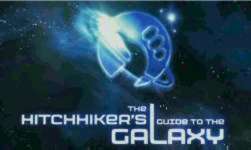
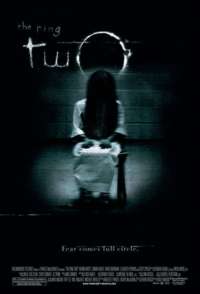
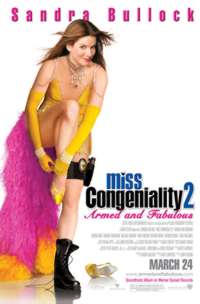 ** IN THE PIPELINE **
** IN THE PIPELINE **